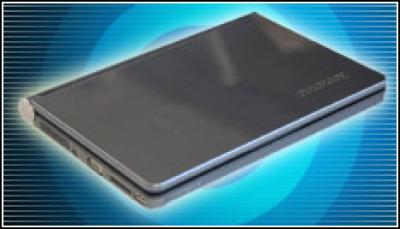Netbooks Are Not a Business Solution

Machines that are underpowered and hamper your employees’ productivity are not going to catch on anytime soon.
The netbook was once owned solely by geeks, but the small, ultra portable laptop is quickly becoming an important segment in the PC industry. According to analysts at ABI Research, 39 million netbooks will be delivered by the end of 2009. IDC, another market analyst, contends that 21 million netbooks will be sold this year. Either way, the segment is growing rapidly. At the same time, sales of laptops and desktops were down in 2008 and most analysts believe that trend will continue through 2009.
And so, as netbooks are being cited as the possible saviours of the PC industry (a claim that is probably more hype than anything else), the attention quickly turns to business to see to what degree the devices can replace the desktop and notebook in companies across the world.
Some say that netbooks make sense for the enterprise because they are easily totable from the office to a client’s location. Others say that they provide business customers with what they really need; an affordable alternative to expensive HP, Dell or Lenovo laptops. But those arguments don’t consider the many needs of companies. Lugging computers from one office to another isn’t such an important concern. And while affordability matters, the return on that investment matters more. When it comes to netbooks, that return isn’t high enough.
Windows, please?
There are a variety of netbooks on the market from companies such as Asus and Acer. Most of the companies that sell netbooks offer Windows, but in some cases, the netbooks come bundled with Linux, requiring companies to pay a little more for Windows. This won’t break the bank as Windows machines usually retail for no more than $50 more than Linux netbooks, but it’s the version of Windows that hurts most companies. Asus Eee PCs come bundled with Windows XP Home. Just one Acer Aspire One netbook model, the Aspire One Pro, comes bundled with Windows XP Professional. Companies looking for anything else, such as Windows Vista Business Edition, won’t find it in a netbook.
Power Problems
The reason for that is yet another problem with netbooks, they simply don’t have the power to run resource-intensive operating systems such as Windows Vista. Netbooks are extremely underpowered. Asus’ top-of-the-line Eee PC netbook sports a 1.6GHz Intel Atom processor and an integrated Intel graphics card. The netbook has 1GB of RAM and up to a 160GB hard drive. But it lacks a DVD drive, and comes with Windows XP Home as standard, and doesn’t have the power to handle a variety of resource-intensive business applications.
Isn’t that the biggest problem with the power issue in netbooks? Sure, it’s a great Web surfing device, and performing basic tasks such as answering e-mails and writing up a quick document is possible. But when the time comes to open a major business application, the netbooks’ viability is severely diminished. They simply don’t provide the kind of capability that a laptop or desktop can. In the business world, netbooks are little more than Web surfing toys.
The Middle Ground
Netbooks have another problem in companies, they don’t have a place in the market. As the enterprise becomes more connected, employees are more reliant than ever on smartphones. Whether it’s the iPhone or a BlackBerry, professionals are using the small devices to stay in touch when they’re away from a computer. When they do have access to a computer, they need to have a product that’s capable of handling their needs. They need that laptop with the 2.4GHz processor. They require that DVD drive. They need Windows XP Professional to ensure they have the right operating system to do their job. Simply put, they need a laptop or a desktop.